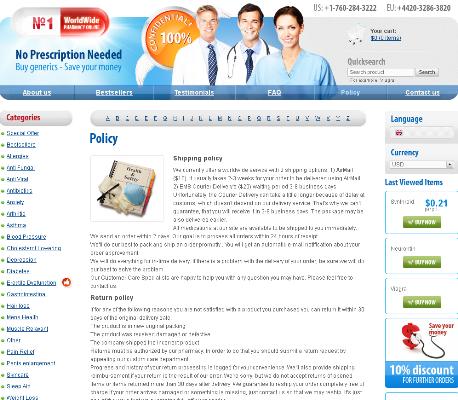Deltasone in Children: What Parents Should Know
When Deltasone Is Prescribed for Children
Parents often face difficult decisions when their child’s health is at stake, especially if a doctor recommends a medication like Deltasone. Used primarily for its powerful anti-inflammatory and immunosuppressive properties, this medication can offer rapid relief for young patients battling conditions where inflammation is a primary concern. Common scenarios include severe allergic reactions, asthma that flares up despite other treatments, or autoimmune disorders such as juvenile arthritis or lupus. For some children managing certain blood disorders or after organ transplants, Deltasone can be lifesaving.
Deciding to start this medication is rarely taken lightly, as doctors carefully weigh potential benefits against possible side effects. They typically prescribe it when other treatments are ineffective or the child’s symptoms threaten their overall well-being. Open communication with your healthcare provider ensures you understand why Deltasone is necessary in your child’s unique situation.
| Common Pediatric Uses of Deltasone | Examples of Conditions |
|---|---|
| Allergic reactions | Severe allergies, skin rashes |
| Autoimmune disorders | Juvenile arthritis, lupus |
| Respiratory issues | Asthma, croup |
| Blood disorders | Leukemia, low platelet count |
How Deltasone Works in a Child’s Body

When a child takes deltasone, the medication acts much like the hormones naturally produced by their adrenal glands. It works to suppress inflammation and calm an overactive immune response, which can make a big difference for children facing conditions like asthma, severe allergies, or autoimmune disorders. Deltasone essentially signals the body to pause its inflammatory reaction, reducing swelling and discomfort.
Because children’s bodies are still developing, how deltasone is processed can be different compared to adults. It’s quickly absorbed through the digestive tract and gets to work throughout the body. This rapid action often brings noticeable relief, but it’s also why close monitoring is important.
Caregivers might notice improvements in symptoms within hours or days, which can be encouraging. However, since deltasone affects many systems, its impact might extend beyond just the targeted problem. Understanding these mechanics helps parents appreciate both the benefits and the need for careful supervision during treatment.
Common Side Effects Parents Should Watch for
As your child begins deltasone treatment, you might notice changes in their mood or energy—sometimes becoming irritable, restless, or even struggling with sleep. Increased appetite and weight gain are also relatively common, especially with longer courses. Some children develop puffiness in their face, sometimes called "moon face," as well as mild stomach discomfort.
It's important for parents to recognize that these effects are typically temporary and often fade as the medication dose is reduced or stopped. However, keeping a close eye on your child's well-being and openly discussing any changes with their doctor ensures that deltasone can be used safely and effectively during treatment.
Dosage Guidelines and Safe Administration Tips

Careful measurement is key when giving Deltasone to children—always use the dosing device provided by your pharmacist, not a household spoon. It’s important to stick to the prescribed schedule, as suddenly stopping or missing doses can cause problems for your child’s system.
To help your child adjust, try to administer Deltasone with food or milk to ease potential stomach upset. Establishing a routine, such as giving medicine at the same time each day, can make things smoother and easier to remember.
Keep an updated record of doses and report any concerns or missed doses promptly to your doctor. As you guide your child through treatment, open communication helps ensure safety and the best possible outcome.
Warning Signs That Require Immediate Attention
If your child is taking Deltasone, it’s vital to recognize the differences between expected side effects and signals of something more serious. Sometimes, steroids can cause rare but dangerous reactions—such as severe allergic responses, difficulty breathing, swelling of the face or throat, or sudden and unusual tiredness. Parents should also be alert for symptoms like severe mood changes, persistent vomiting, high fever, confusion, or vision problems, as these might signal an urgent medical issue rather than an ordinary side effect.
Quick action can make all the difference. If any of these signs appear, seek immediate medical attention rather than waiting for the symptoms to pass. For your reference, here’s a table summarizing key warning signs:
| Warning Sign | What to Do |
|---|---|
| Difficulty breathing, swelling of face/throat | Call emergency services immediately |
| Severe mood or behavioral changes | Contact your doctor promptly |
| Unusual tiredness or confusion | Seek urgent medical advice |
| Vision changes | Schedule a medical evaluation without delay |
Supporting Your Child through Deltasone Treatment
Navigating your child’s journey with Deltasone can feel overwhelming, but creating a calm and reassuring environment can make a big difference. Stay informed about the medication's effects and talk openly with your child about their feelings or any discomfort they may experience. Encourage healthy routines, including nutritious meals, ample sleep, and gentle physical activities when possible. Keep clear communication with your healthcare team, reporting any concerns promptly. Above all, your patience and understanding will provide comfort and stability throughout the treatment.
<

